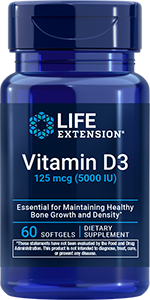
The Best Way to Take Vitamins & Supplements: Optimize Your Intake
Published: September 2021 | Updated: June 2024
A common question in the vitamin world is, "What's the best way to take vitamins and supplements?" The short answer: it depends. In some cases, you might be told to take it on an empty stomach. In other cases, you might take it with food or at a certain time of day.
Not to add to the pressure, but knowing which way to proceed really matters. For supplements to actually work, your body first needs to absorb them. This goes for all supplements, whether they are vitamin supplements, mineral supplements or botanical extracts.
And it can be hard to navigate the world of nutrition and supplements. Between capsules, tablets, softgels, and powder supplements, it is a lot to take in (both mentally and physically).
Let's go over the different ways of taking supplements to maximize their benefits.
What is the most effective way to take supplements?
If you take supplements, you have probably heard it all: take your vitamin supplements with food, take your mineral supplements without food, take a supplement in the morning but only after breakfast, or take one while hopping up and down on one foot. (Kidding, that last one probably won't help much!)
In reality, taking supplements can be as easy as following the directions on the label. The dosing instructions follow what was used in clinical studies, and these guidelines help maximize the benefits you receive. Directions for a workout supplement might be as simple as taking it before going to the gym, whereas weight management supplements might require taking it with a meal or around mealtime for the best effect.
Additionally, keep in mind that high-quality supplements are formulated to maximize absorption. For example, many multivitamin and multinutrient formulas combine different types of vitamins, minerals, and other nutrients together that play nicely together while providing you the daily nutrition needed to support your health goals. Other formulas combine active nutrients, such as the curcuminoids in curcumin, with special delivery systems that help them last much longer in the bloodstream.
That being said, there are other factors aside from simply following the directions—namely, whether the supplement in question is the only one you're taking, or you're adding it to an established routine. This is especially true when it comes to vitamins.
How to take vitamins for optimal absorption
Vitamins are essential nutrients, meaning our bodies need them to function but cannot make them, so we must get them from our diet, with the exception of vitamin D, which we make in response to sunlight (although often not in high enough amounts to forgo dietary intake). While they have all this in common, there's one important area where they differ: certain vitamins are considered water soluble, and other types of vitamins are fat soluble. (One of the more popular water-soluble vitamins is vitamin C, and fat-soluble vitamins count vitamin E and vitamin D in their ranks.)
The difference in solubility means that certain vitamins, namely the fat-soluble vitamins, are best taken with food because the naturally occurring fats in food help the body absorb these vitamins more efficiently. (That being said, remember the cardinal rule in supplements: follow the label! This will tell you how best to take vitamins and supplements to get the most out of them.)
Water-soluble vitamins
- B vitamins
- Vitamin C
Notable exceptions: a few of the eight B vitamin supplements, such as niacin (B3) and folate (B9, often provided in the form of folic acid) are taken with food. When in doubt, check the product label, which will clearly indicate if a formula needs to be taken twice daily, with food, or on an empty stomach.
Fat-soluble vitamins
- Vitamin A
- Vitamin D
- Vitamin E
- Vitamin K
Fat-soluble vitamins and nutrients are generally best taken with food, which helps with absorption. Perhaps the most famous fat-soluble vitamin is vitamin D. Many people do not get enough vitamin D from their diet and lifestyle. This is where a supplement comes in. Personally, I find yogurt to be a tasty companion when taking vitamin D supplements, but it is also good with a favorite snack or simply taken with a meal. This doesn't mean increasing your fat intake; most meals naturally contain enough fat to help support absorption.
Wondering about magnesium, selenium and other minerals? Mineral supplements can generally be taken without food, although this is not a definitive rule.
Explore Our Best General Health & Wellness Supplements
Can't I just take all my supplements at once?
Is all of this sounding a little overwhelming? Maybe you're tempted instead to pour out your supplements, pop them all at once, and call it a day. Why risk forgetting to take them when you can take them all at once? (This is why some people opt for a multivitamin.)
But taking all your supplements at once might not be a good idea if they should be taken with or without food, or if the supplement is designed to be taken twice daily. Calcium is a great example, as scientific evidence suggests that calcium supplementation in divided doses with food may yield the best results.
On the other hand, some mineral supplements, such as iron supplements, may not need to be taken with food and can be taken together with most other supplements. Folate and vitamin B12 are a great complement to iron supplements, as they are all vital components to the production of red blood cells. Another great companion is vitamin C, which helps support iron absorption. (Important caveat: not everyone should take iron! Supplemental iron is intended to help provide enough iron in times of increased need. Be sure to consult your health care provider before taking an iron supplement.)
Which supplements are the most absorbable?
Some nutrients, especially those that are fat soluble or have poor bioavailability, can be scientifically formulated to help improve absorption. One example is curcuminoids, a group of bioactive compounds including the ever-popular curcumin, sourced from turmeric. Curcuminoids can become conjugated once they enter the body, meaning they undergo a chemical reaction where one compound is attached to another.
Conjugated curcuminoids may not provide the same health benefits as free curcuminoids. Combining curcumin with galactomannans, a type of fiber from fenugreek seeds, protects the curcuminoids from conjugation and provides up to 45 times increased bioavailability. Talk about a win-win!
Pro tip: While curcumin is a very popular supplement for people looking to support a healthy inflammatory response, it's only one in the sea of other options out there. Take our health needs quiz today to get personalized suggestions that can help you reach your health goals.
What supplements should not be taken at night?
In general, supplements that have a stimulatory effect are best avoided at night, so they don't interfere with healthy sleep. Green tea extracts are a good example because they often contain caffeine that can affect your ability to fall asleep.
On the flip side, some supplements are designed to be taken at night to help support healthy sleep. Melatonin probably comes to mind, but there are a variety of melatonin alternatives that can also help support healthy sleep. Experts recommend seven to nine hours of sleep a night, but this isn't always easy. Sometimes a little help from a supplement goes a long way in helping to get those precious hours of shuteye.
Getting the most from supplements
The key to benefitting from supplements is consistency. Our bodies are constantly active as we repair, renew and grow. Whether we're looking to support comfortable joints, immune health or a healthy inflammatory response, it is important to be consistent in taking supplements to give the body what it needs to get the job done. We won't see lasting results if we only go to the gym once, and the same applies to supplements. Be sure to take vitamin supplements routinely and eat a healthy diet to maintain good nutrition.
All of the best-laid plans aside, it can be difficult to plan your supplementation to the point that everything is always optimized. But with some strategic planning, you can get the most out of your diet and supplements. Be consistent with your supplements, follow the product label, and stick to the plan, and it becomes a lot easier than you might think.
References
- Hopkins M, et al. "The Control of Food Intake in Humans." National Library of Medicine. November 2022. https://www.ncbi.nlm.nih.gov/books/NBK278931/
- Kumar D, et al. "Enhanced bioavailability and relative distribution of free (unconjugated) curcuminoids following the oral administration of a food-grade formulation with fenugreek dietary fibre: A randomised double-blind crossover study." Journal of Functional Foods. 2016. https://www.infona.pl/resource/bwmeta1.element.elsevier-99aa6713-e079-3a85-8626-387d4dd99e7f
- Piskin E, et al. "Iron Absorption: Factors, Limitations, and Improvement Methods." ACS Omega. June 2022. https://pubmed.ncbi.nlm.nih.gov/35755397/
- Rebelos E, et al. "The Role of Vitamin D in Health and Disease: A Narrative Review on the Mechanisms Linking Vitamin D with Disease and the Effects of Supplementation." Drugs. June 2023. https://pubmed.ncbi.nlm.nih.gov/37148471/
- Stevens SL. "Fat-Soluble Vitamins." Nurs Clin North Am. March 2021. https://pubmed.ncbi.nlm.nih.gov/33549284/
- Sugandhi VV, et al. "Pharmacokinetics of vitamin dosage forms: A complete overview." Food Sci Nutr. November 2023. https://pubmed.ncbi.nlm.nih.gov/38268871/
- "Calcium." National Institutes of Health. January 2024. https://ods.od.nih.gov/factsheets/Calcium-HealthProfessional/
- "How Much Sleep Is Enough?" National Heart, Lung, and Blood Institute. March 2022. https://www.nhlbi.nih.gov/health/sleep/how-much-sleep
- "Rx for Health." Data on file.
Always be in the know!
Access the latest deals, wellness news, expert health tips & more!










